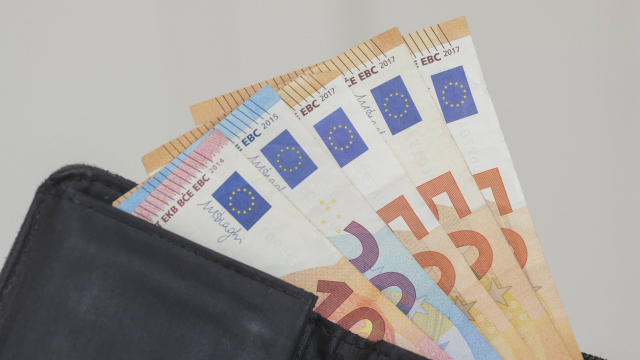A new plan to combat the shadow economy provides for a more thorough analysis of those who withdraw and deposit large sums of money into their accounts each month. This does not necessarily mean dishonest behavior – for example cash is used for payments by many small service business operators.
Last year, 4.6 billion euros were withdrawn from ATMs in cash, while 2.1 billion euros were deposited into ATMs. Total cash circulation was around 8 billion euros. Currently, the ratio between non-cash and cash payments is 70 to 30 in favor of non-cash.
It is expected that with the development of technology, this proportion in favor of cashless transactions should increase even more, however, cash payments as a form of payment will not disappear completely, according to the central bank.
"Especially taking into account the current geopolitical conditions, let's not forget that cash is a means of payment that does not depend on either the electricity supply or the availability of the Internet. Because this is another important factor that makes us as a central bank believe that it is it is our duty to preserve this role of cash," said Zita Zariņa, a member of the Board of the Bank of Latvia.
"I am interested in making as many cashless payments as possible, because cashless circulation is transparent," said Olga Bogdanova, the Deputy State Secretary of the Ministry of Finance for curbing the shadow economy.
A little more than a month ago, the government adopted its latest plan to combat the shadow economy, one of the areas of which will be the issue of cash. For example, in the future, it will be necessary to conduct a more active analysis of potential members of the shadow economy, who withdraw or deposit large sums of money into ATMs every month.
"If a person has no income and suddenly a larger amount of money comes in, this will also be a reason to investigate this person more deeply. Or, for example, a company – a legal entity – if its employees receive cash on a large scale not only for withdrawals, but also for deposits, well you can also look and explore," explained Bogdanova.
However, many commercial banks are cautious about introducing new restrictions on cash transactions.
"I think it's better to go the natural route. Technology is doing its thing. Technologies are becoming more accessible, simpler, and we use them more and more," assessed Jānis Brazovskis, a member of the board of the Finance Latvia Association.
It is also forseen that in the future salaries should primarily be paid by non-cash methods, and larger companies will be obliged to provide a card terminal at points of sale.



























